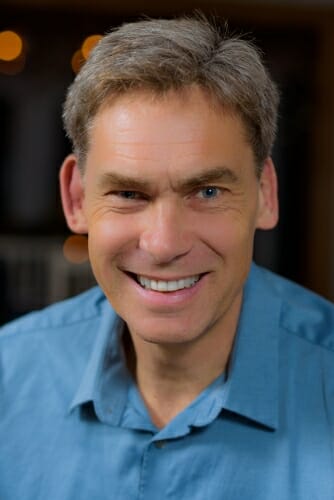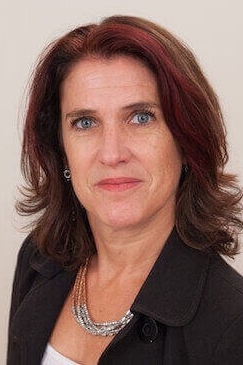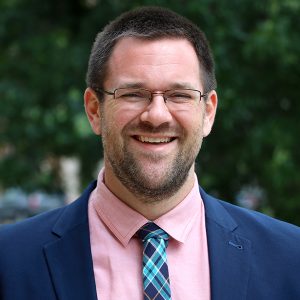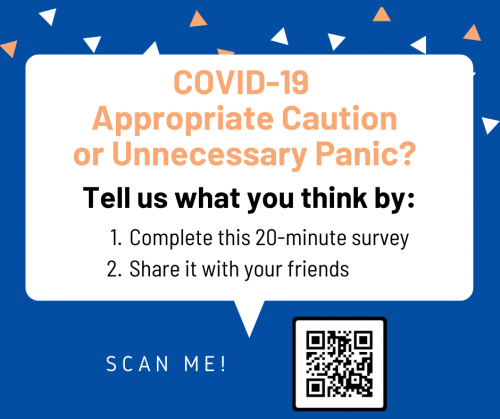Taking survey can help thwart COVID-19, spread Wisconsin Idea
In a fast-moving response to COVID-19, the University of Wisconsin–Madison and the League of Wisconsin Municipalities are joining forces to help slow the spread of the disease. And they need your help.
What can you do? Take a 20-minute survey, and ask your friends to do the same. What do you know about social distancing? What are you willing to do? What motivates you?
Based on your responses, the UW–Madison team will design a social media campaign to successfully encourage healthy behavior. The survey will help researchers better understand how everyone — from students to faculty, city dwellers to rural residents — is reacting to COVID-19, including the benefits and barriers to physical distancing.
An initial survey is being shared through social media across Wisconsin. This will jumpstart the design process and provide valuable information. A second survey using a national, random sample will follow within a week.
“To have the best chance of slowing the spread of the disease, it’s important to understand the behavior and what people think about the coronavirus in this crazy time,” says Markus Brauer, a professor in the Department of Psychology and the Wisconsin School of Business. “The survey results will be key to moving ahead because we can only address this crisis if we know what people think and how they behave.”
The main mistake communicators often make is assuming they know what people think, according to Dominique Brossard, professor of Life Sciences Communication.
“We know that’s actually not the case,” says Brossard. “People come from very different standpoints, and unless we reach out to them to understand where they’re coming from, communications will be a failure.”
Taking into account the science behind science communication is important, Brossard says. Today, the UW–Madison team is reacting quickly to the challenge of messaging, helping people protect their community. Further research will add more information that will prepare communities for what happens tomorrow, after the crisis is over.
The project began when Gail Sumi’s daughter and her co-workers, who had watched people gathering in bars and restaurants over the weekend, wanted to start a social influencer campaign to encourage people to distance themselves from one another. UW–Madison representatives had already asked Sumi, member engagement and communications director of the Wisconsin League of Municipalities, if there was anything the university could do to help.
“The League of Wisconsin Municipalities represents cities and villages in Wisconsin. There are 602 of them, and the median size is 1,450. That’s a lot of small communities with dedicated — but likely very few — staff,” Sumi says. “We have a lot of local officials and people who are social influencers in our state, who could make a difference if they could provide the right message in how people see their role in mitigating the spread of coronavirus.”
Sumi had worked with Gavin Luter, managing director of UW–Madison’s UniverCity Alliance (UCA), and knew the group could gather experts and put a campaign together quickly.
“UCA is the front door to the university for local governments,” says Lori DiPrete Brown, associate director of the Global Health Institute and co-chair of UCA’s advisory board. “We were able to bring in the right people — scholars from behavioral psychology, communications, global health, the health science professions and students who want to be part of the response.”
Nearly overnight, the group came together for a virtual planning meeting. Within 24 hours, the survey was in circulation. Social media communications will follow quickly. More than 25 UW–Madison faculty, staff and students and community members are participating, including representatives from the Nelson Institute of Environmental Studies, the Mayors Innovation Project, the Morgridge Center for Public Service, the schools of Nursing and Human Ecology and the Wisconsin Department of Health Services.
“A lot of our local governments and people around the state are struggling. And I think it’s incredible that, at the same time faculty and students are working so hard to adapt to challenges in their educational activities, they came out to serve the community in this way,” Luter says. “We had so many people who are willing to help people of the state, the country and the world.”
The response from the university doesn’t surprise Sumi.
“I think people are excited,” she says. “It gives them something to do that has impact, and we could save lives.”
She believes the project could go much further than providing messages for local leaders.
“Perhaps we can design something that has impact even at the national level,” Sumi says. “I see real potential for that.”
Here’s what you can do to help the effort to slow the spread of COVID-19:
- Take the survey. Your answers will help researchers find ways to slow the spread of COVID-19
- Share the survey link on Facebook, Twitter and other social media accounts. Let friends know they can help their communities by completing the 20-minute survey about behaviors related to COVID-19.
Subscribe to Wisconsin Ideas
Want more stories of the Wisconsin Idea in action? Sign-up for our monthly e-newsletter highlighting how Badgers are taking their education and research beyond the boundaries of the classroom to improve lives.








